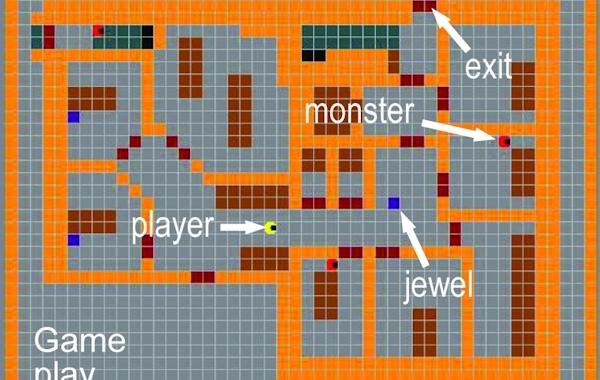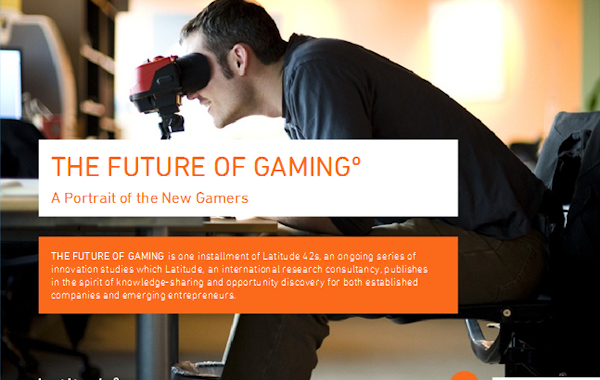Video Game Teaches Blind People to Navigate Buildings
Image: Rendering of physical environment represented in the AbES software; in gamer mode, the player (yellow icon) navigates through the virtual environment using auditory cues to locate hidden jewels (blue squares) and avoid being caught by chasing monsters (red icons).
Blind people can learn the spatial layout of an unfamiliar building using a novel “video game” virtual reality environment that employs only audio-based cues, thus enabling them to learn skills that may improve functional independence, say US and Chilean scientists.










